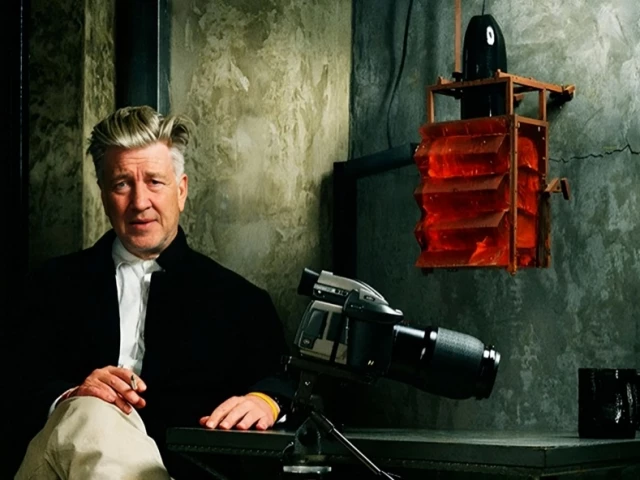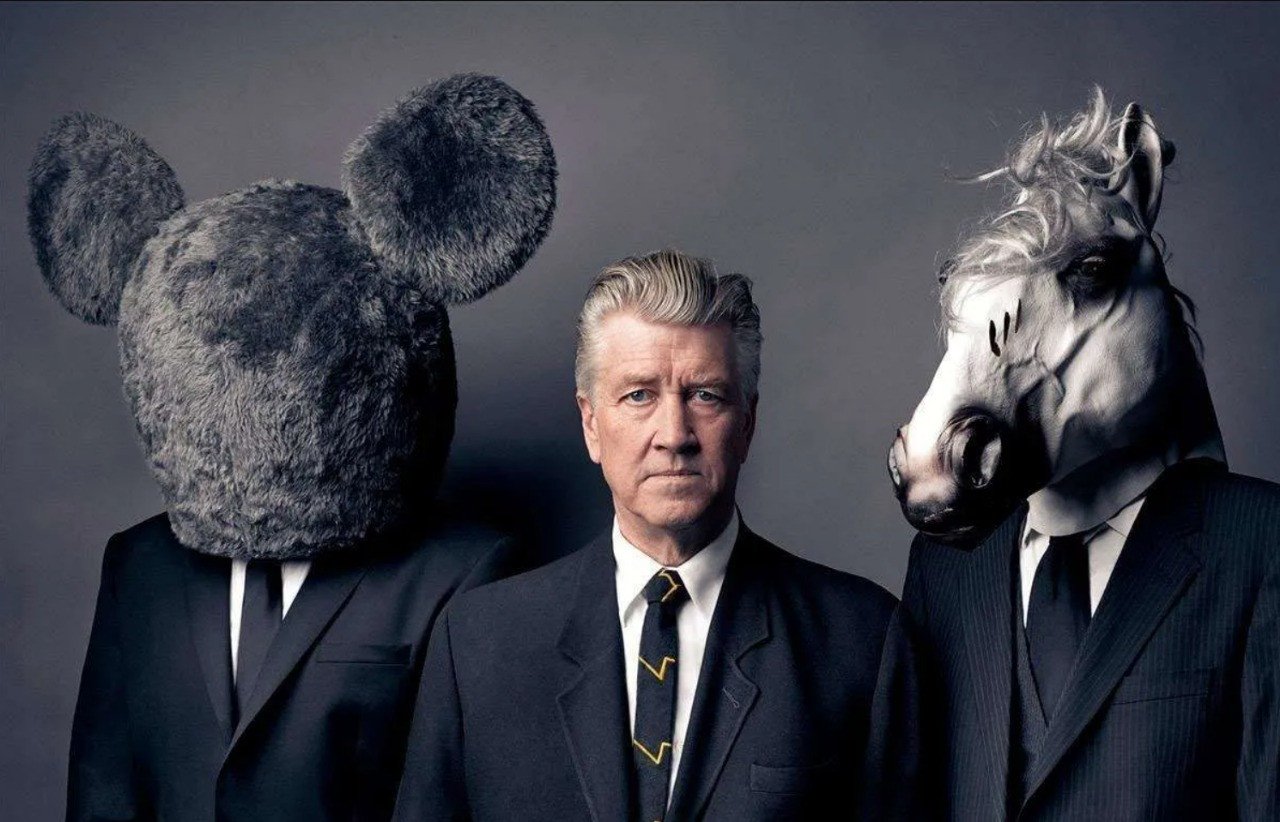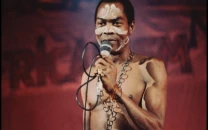Finding David Lynch
A reflection on my strange connection with the surrealist master's work

Life is funny. And absurd. On January 16, 2025, I premiered my debut feature film Indus Echoes at Cinepax Cinemas. The same night, around the same time, the filmmaker I considered my spiritual mentor, David Lynch passed away. Life is absurd. Lynch would have been amused by this irony. He would probably find meaning in this too. Or not.
For over two months, I have been trying to find meaning in his death. Lynch was a lifelong chain smoker. He quit in 2022 after being diagnosed with emphysema, a lung condition caused generally by smoking and pollution and which causes shortness of breath. A lifelong smoker, who needed supplemental oxygen to even walk short distances, died after having to leave his home amidst the L.A. fires which engulfed the city in smoke.
Life is funny. And absurd. Lynch would find this amusing too. He would probably find meaning in this. Or not. In staying true to Lynch's spirit, it would, in fact, be better to not know what it all means, if anything at all.
His work – be it painting, animation, sculpture, music or film – lies in this strange realm where you can feel it and have ideas about what it could mean but never fully know with certainty. Everything is subject to interpretation. His ideas are concrete and deliberate in their structure but they hide behind red curtains in an extradimensional space. And over the years, I have come to realise that there is a different kind of a pleasure in not knowing.
This ambiguity is why Lynch's work is timeless. He opens up a portal to a surreal space where anything can happen and nothing means anything and everything means something. It's a world where erasers are made out of a man's head, dwarves talk in reverse, David Bowie turns into a white glowing orb and a lady lives in a radiator. It's a world where severed ears lead to unraveling mysteries, old men ride lawn mowers across the states, scary faces hide behind diners and a mystery man answers the phone at your house while he stands right in front of you.
Lynch's whole world is wild at heart and weird on top. Unlike other filmmakers, he makes films that converse with the subconscious. That is why, while his body may have passed, his ideas will live forever.

First meeting
I was in my sophomore year at SZABIST when I was first introduced to Lynch's work. I had watched Antichrist by Lars von Trier and told my film history instructor Jibran that I had enjoyed it. He recommended Mulholland Drive to me.
Once I watched Mulholland Drive, something changed. The scope of what cinema can offer expanded in front of me. The possibilities were endless. Films didn't have to stay in the waking world and the stories were not required to follow conventional logic. The use of dream logic and symbolism introduced me to Lynch's surrealism.
I consumed Lynch's entire filmography like it was watermelon juice under the scorching sun in a desert. From his early shorts, The Alphabet, and The Grandmother, to Eraserhead and Blue Velvet to Twin Peaks, the more I watched his work, the more I wanted to again and again.
Eraserhead, his most personal film, remains an all-time favourite. It opens with a strange man pulling levers on a planet and sperm-like figments coming out of the protagonist Henry's mouth. Later, Henry traverses through uneven streets, surrounded by rustic factories with smoking chimneys, and goes back into his eerie apartment building. He gets into the elevator and waits for the door to close. It doesn't. Not right away. There is an uncomfortable pause, and then it closes.
As a film student at the time, that simple moment was a revelation. A few seconds of delay in a mundane occurrence such as closing of a door created an incredible tension and discomfort in the viewer. There is an immense understanding of human and film psychology in small moments like this spread throughout Lynch's filmography. It's worth more than entire film degrees.
There is also a duality in Lynch's work, be it in the settings, characters and even objects. He also uses double roles to explore this concept. It's also a technique I use in Indus Echoes for different purposes and credit it to the surrealist master.

Finding Lynch
Lynch was fascinated by unique textures. He loved old factories and smoking chimneys. He loved skin and teeth, smoke and oil and dirt, broken glass and blood on concrete. I wonder if he would find the long-dead Philadelphian essence in Korangi if he ever visited Karachi. If you stray far and deep enough, Karachi is very much a Lynchian city.
Back in my days as a photographer, I would also look for such textures to shoot. I feel I owe this fascination with old, rustic objects and structures to Lynch as well. The vintage qualities of Empress Market, narrow staircases and corridors in Saddar, rusty doors in Hyderabad, walls with paint peeling off them, in the cracks of a wooden boat in Kotri, and the eyes and beautiful, expressive wrinkles of a limbless fakeer at Abdullah Shah Ghazi's shrine, Lynch lives on.
I guess I will continue to find Lynch in the most mundane as well as the extraordinary spaces. Lynch will find this stranger's strange connection with him quite amusing. There is probably a meaning in it. Or maybe not. But that's the beauty of it.
Have something to add to the story? Share it in the comments below.




















COMMENTS
Comments are moderated and generally will be posted if they are on-topic and not abusive.
For more information, please see our Comments FAQ